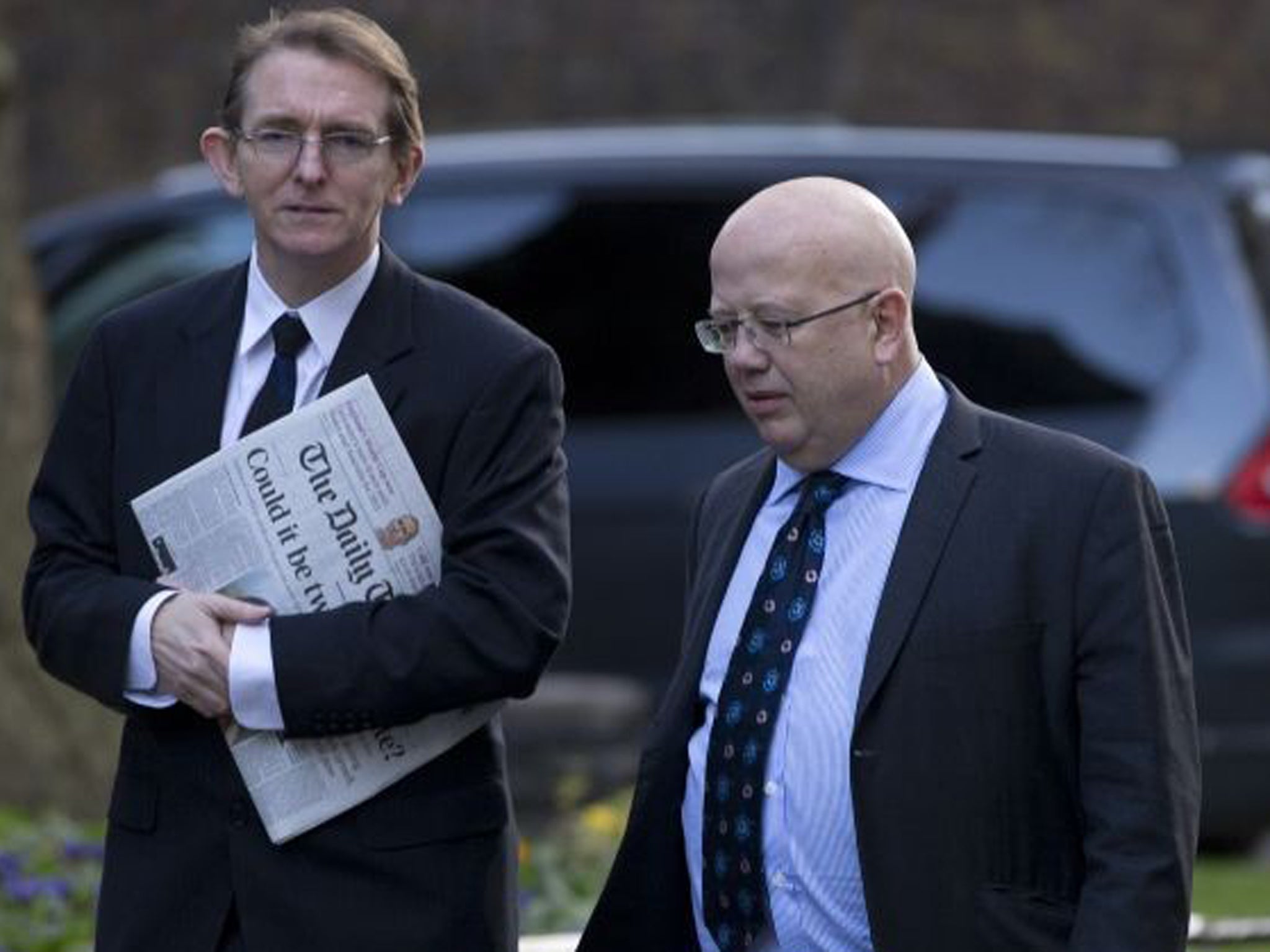Fleet Street’s editors summoned to Downing Street over Leveson’s recommendations

Your support helps us to tell the story
From reproductive rights to climate change to Big Tech, The Independent is on the ground when the story is developing. Whether it's investigating the financials of Elon Musk's pro-Trump PAC or producing our latest documentary, 'The A Word', which shines a light on the American women fighting for reproductive rights, we know how important it is to parse out the facts from the messaging.
At such a critical moment in US history, we need reporters on the ground. Your donation allows us to keep sending journalists to speak to both sides of the story.
The Independent is trusted by Americans across the entire political spectrum. And unlike many other quality news outlets, we choose not to lock Americans out of our reporting and analysis with paywalls. We believe quality journalism should be available to everyone, paid for by those who can afford it.
Your support makes all the difference.Fleet Street’s editors were told today that the Government wishes to appoint an “unimpeachable, impartial verifier” to oversee a new press regulation system and ensure Lord Justice Leveson’s recommendations are implemented in full.
A delegation of 19 national newspaper editors and representatives were summoned to Downing Street today and told by David Cameron and senior Tory colleagues to come up with industry suggestions for an “ironclad” verification model which would convince the public that a new press regulator was working effectively.
Oliver Letwin, Minister of State for Policy, told the editors that civil servants and the “entire government legal team” are working on a verification body which would monitor the performance of a new regulator every two years.
Crucially, he suggested such a body – which would avoid the involvement of broadcast regulator Ofcom - could be established without new law, despite Leveson’s call for a press watchdog underpinned by statute. Mr Letwin wouldn’t specify the model being looked at, although some present speculated that it involved a member of the judiciary or a Parliamentary office.
The Prime Minister warned editors that unless the Leveson proposals were accepted in entirety he would introduce a press law.
Newspaper editors will meet again tomorrow and have been told to report back to the Culture Secretary Maria Miller on Friday with a “timetable for progress”. The Government is hopeful that draft proposals for a new independent regulator would be in place by Christmas.
The notion of a “verifier” without powers enshrined in law was quickly rejected by press reformers.
The idea was “incoherent,” said Evan Harris, associate director of pressure group Hacked Off. “If Leveson’s recommendations concluded there must be a statute to create an independent verifier of the self-regulation system it is gibberish to say you are going to implement Leveson in full without that.” He said Leveson “knows something about judges” and had “spent a year thinking about this”.
Some victims of phone hacking had gathered at Downing Street to heckle the editors, who knew that they had to put aside intense industry rivalries and present a unified front in order to head off the introduction of press law. Referencing the film The Godfather, Tony Gallagher, editor of the Daily Telegraph, tweeted that the meeting “felt like the summoning of the five families”.
Those present included Lionel Barber, editor of the Financial Times, James Harding, editor of The Times, Chris Blackhurst, editor of The Independent, Alan Rusbridger, editor of The Guardian, Geordie Greig, editor of the Mail on Sunday, and John Witherow, editor of The Sunday Times. Paul Dacre, editor-in-chief of the Daily Mail, was a notable absentee – unable to attend for personal reasons.
Dominic Mohan, editor of The Sun, wrongly assumed he would be allowed to enter Downing Street by car. There was only one woman among the journalists – Sarah Sands, editor of the London Evening Standard.
The Prime Minister spent 20 minutes in the meeting before handing over to Mr Letwin who stressed the urgency of implementing the reforms and the importance that Leveson’s proposals were accepted “line by line”.
The Deputy Prime Minister Nick Clegg has backed Leveson’s call for statutory underpinning but the Liberal Democrats were not represented at the meeting. The Conservatives were pleased that the editors seemed unanimous in accepting the inadequacy of earlier reform proposals backed by Lord Hunt of Wirral, the chairman of the Press Complaints Commission, who also attended the meeting. Ms Miller described those plans, which were also produced by Lord Black of Brentwood, chair of the PCC’s funding body Pressbof, as being “unconvincing”.
Despite this, Lloyd Embley, editor-in-chief of the Daily Mirror, came out of the meeting and tweeted: “There is a firm belief that papers can deliver Leveson principles far more quickly without legislation – better for public and free speech.”
Join our commenting forum
Join thought-provoking conversations, follow other Independent readers and see their replies
Comments